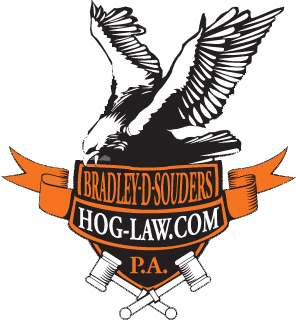Long Distance Motorcycle Rides - Motorcycle Safety Tips
Long-distance motorcycle rides can be exhilarating and fulfilling adventures, but safety is paramount.
Here are some essential safety tips:
1. Plan Your Route:
- Research and plan your route ahead of time, considering road and traffic conditions, weather forecasts, and potential fuel stops.
- Share your itinerary with someone trustworthy.
- Keep a written itinerary on board, including related reservations.
- Depending on your preference, have GPS, flash drive or old fashioned paper maps on board to know your route ahead.
- A planned and documented route is the safest way to go.
2. Pre-Ride Check:
- Ensure your motorcycle is in top condition - properly serviced. Good battery, tires not aged, with good tread and inflated properly, front & rear brakes functional with good brake pads, all lights working, and all fluids (engine, transmission & primary changed) & possibly coolant – all at appropriate levels.
3. Personal Items:
- All items typically carried such as: Cash, Credit/Debit Card, Cell Phone & charger, Driver License, Emergency Contacts, Health Insurance, Motorcycle Insurance & Vehicle Registration and anything else for every day carry (EDC).
- All every day items in your toiletry bag such as medications, personal hygiene and reading glasses.
4. Wear Appropriate Gear:
- Always wear a DOT-approved helmet that fits properly.
- Full-coverage, abrasion-resistant riding gear (jacket, pants, gloves, and boots) can protect you in case of a fall.
- Always have full rain gear on board, typically saved in a designated saddle bag, for reliable and quick access.
5. Pack Appropriate Clothing:
- Think "head to toe" packing your favorite hat, sunglasses, sunscreen, shirts, jackets, jeans, shorts, belts, underwear, swimwear, evening wear, socks and walking shoes.
6. Stay Hydrated and Rested:
- Dehydration and fatigue can impair your reaction time and decision-making. Drink plenty of water and take breaks to rest for physical strength and mental alertness.
7. Obey Traffic Laws:
- Respect speed limits and traffic rules. Be especially mindful of speed in unfamiliar areas or during adverse weather conditions.
8. Be Visible:
- Wear brightly colored or reflective clothing to increase visibility, especially at night or in low-light conditions.
- Use your motorcycle's lights effectively.
9. Stay Alert:
- Maintain focus and scan the road ahead for hazards like debris, animals, or sudden changes in traffic.
- Use mirrors frequently to be aware of your surroundings.
10. Weather Awareness:
- Check weather forecasts before and during your ride.
- Be prepared for changing weather conditions and adjust your riding style accordingly.
11. Pack Essentials:
- Carry a basic tool kit, first aid kit, cleaning towels, windshield spray, bike cover, zip ties and zip lock bags, emergency contact information, a bungee cord or netting and a hidden spare key.
12. Do Not Pack Too Much Weight:
- Be careful not to pack too much, as carrying more weight can affect handling of your bike at any speed, especially when turning, braking or hitting uneven road surfaces.
- A lighter bike is easier, safer and more enjoyable to ride.
13. Emergency Preparedness:
- Know how to handle emergencies like a breakdown or accident.
- Have roadside assistance contact information readily available.
14. Ride Defensively:
- Assume that other drivers may not see you.
- Be prepared to react to their movements.
- Maintain a safe following distance from other vehicles.
15. Listen to Your Body:
- Take breaks when feeling fatigued or experiencing discomfort.
- If conditions worsen (e.g., heavy rain, strong winds), find a safe place to wait it out if possible.
16. Other Items To Consider:
- For a more comprehensive checklist, consider the online Motorcycle Packing Checklist by Brian Hooker, with his downloadable PDF by visiting: www.brianhooker.com
By following these safety tips, you can enhance your enjoyment of long-distance motorcycle rides while prioritizing your safety and well-being.
Brad Souders, a lifetime biker, an award-winning attorney with more than 30 years' experience – A Biker Representing Bikers!
Attorney Brad Souders has a main office in Tampa, representing injured bikers and their families throughout the state of Florida.
Free Initial Consultations, also offering home, hospital & evening or weekend appointments. Simply call Brad's cell phone at 813-220-7767.

